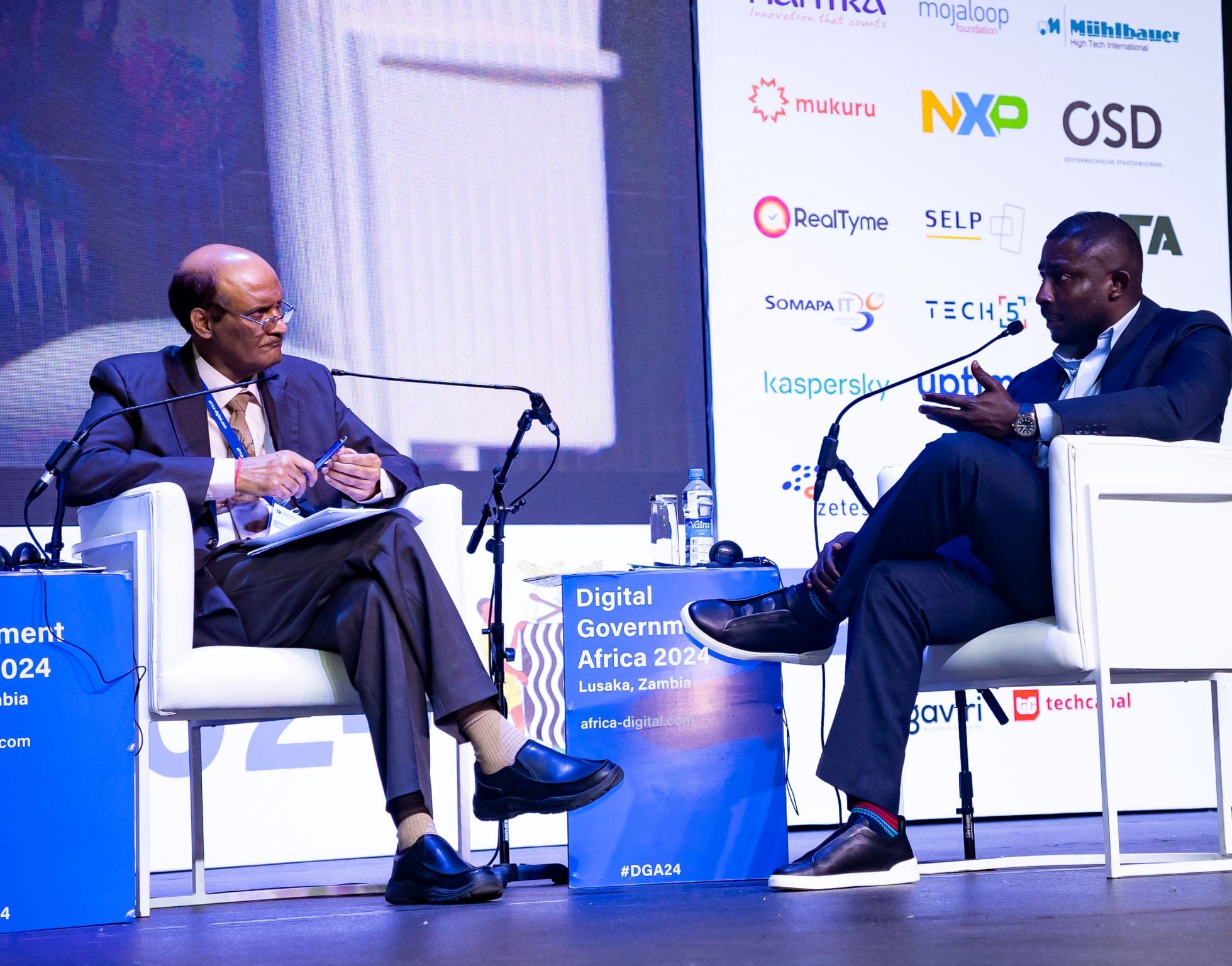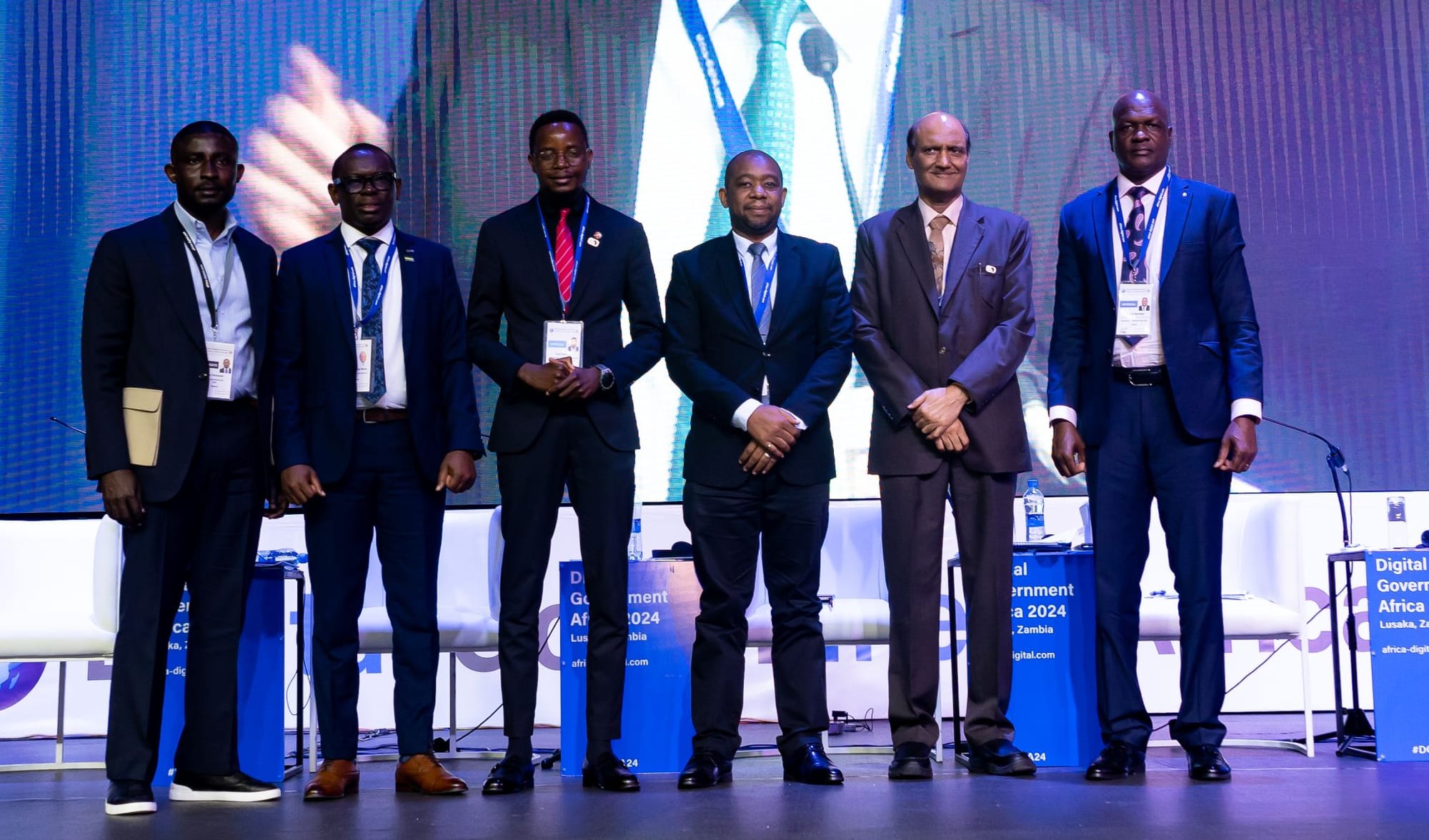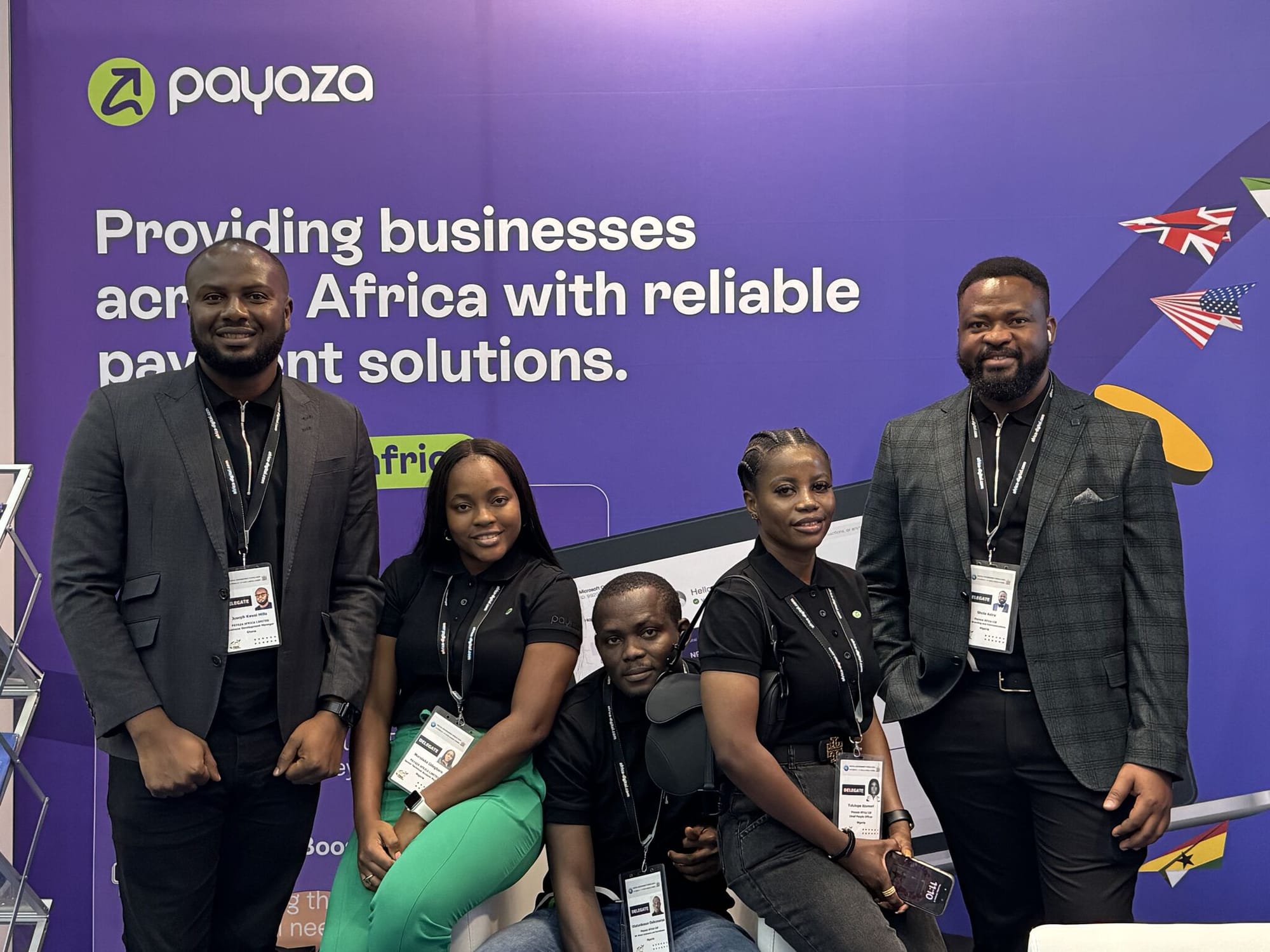Payaza Africa, African Leaders Connect at Digital Government Africa 2024

At "Digital Government Africa 2024," Payaza was prominently represented by our esteemed senior leadership team and other staff members who engaged extensively with prominent African and business leaders.
In recent years, Africa has embarked on a journey of comprehensive digital transformation, emphasising advancements in electronic identification systems, cybersecurity, digital literacy, and regional cooperation. This transformation is a technological shift and a strategic framework that aims to streamline public services, enhance data security, and foster socioeconomic development. Key figures from various African nations share their insights, revealing diverse approaches to overcoming barriers and accelerating progress.

Seyi Ebenezer, the CEO & Founder of Payaza, moderated a panel session alongside notable figures such as Devendre Gopaul, Permanent Secretary from the Prime Minister's Office (Home Affairs Division), Mauritius; Jacob Narengo, Secretary – Internal Security at the State Department for Internal Security and National Administration, Kenya; Paul Katema, Director of E-Government at the Ministry of Information and Digitalization, Malawi; Ricco Boma, Director Services Management at the President's Office: e-Government Authority, Tanzania; and Sulaiman Phoray Musa, Director at the Office of the President, Public Sector Reform Unit, Sierra Leone. The panel explored advancements in “Implementing Technology for E-Government Capacity Building.”
As African countries increasingly embrace digitalisation, the stakes are high. Leaders from different parts of Africa discussed how their respective countries are addressing challenges and making strides in implementing digital systems, e-governance, and ICT infrastructure, as well as their approaches, achievements, and forward-looking plans that shape Africa's digital landscape.
- Advancing Identity Systems for Resilience and Flexibility
Mauritius: Microservices Approach for Enhanced Flexibility
Mr Devendre Gopaul explained how Mauritius has transformed its identity (ID) system by implementing a microservices-based architecture for enhanced flexibility. Moving away from traditional, monolithic systems, this approach enables the ID and civil services to operate through modular, independent functions. This structure allows for seamless upgrades and minimises service disruptions. The shift to an open-source platform has also reduced licensing costs and the risk of vendor lock-in. Mauritius has achieved scalability and flexibility by adopting a virtualised network, supporting the country's goal of a resilient, interoperable digital infrastructure.
The Permanent Secretary further stated that the latest ID version, 3.0, incorporates artificial intelligence (AI) for identity verification and security. The mobile-enabled digital ID offers citizens an e-KYC (Know Your Customer) feature, using AI-powered facial recognition for remote identity verification. This innovation has streamlined verification processes and made accessing services easier and safer, ultimately reinforcing trust and engagement in digital systems.
- Cybersecurity Challenges and Collaborative Solutions
Kenya: Building a Cybersecurity Framework for Resilient Governance
Mr Jacob Narengo illuminated how Kenya's digitalisation journey has highlighted the need for a robust cybersecurity framework to protect its expanding digital infrastructure. The government has established a multi-agency coordination policy to address this, ensuring every government agency has a dedicated cybersecurity unit. The National Computer Cybersecurity Coordination Committee (MC4) is a centralised hub, enhancing collaboration and rapid response to cyber threats across departments. Kenya has invested significantly in cybersecurity training and public awareness campaigns to fortify this digital ecosystem, ensuring that both the government and citizens are informed and vigilant.
- Expanding Digital Literacy and Accessibility
Malawi: Bridging the Digital Divide
Malawi's "Digital Malawi Project" focuses on empowering its population with digital skills essential for modern livelihoods. Training over 19,000 individuals in digital literacy, the program promotes employable skills and fosters entrepreneurship, Mr. Paul Katema stated. Recognising the role of connectivity in digital adoption, Malawi has installed free Wi-Fi zones in markets, schools, and public spaces, benefiting over 700 government institutions. This broad access allows for the widespread use of digital services, driving Malawi's socioeconomic growth.
Sierra Leone: Training Civil Servants for Digital Transformation
Mr Sulaiman Phoray Musa stated that with an ambitious target to digitise public services by 2026, Sierra Leone has focused on digital literacy for civil servants, implementing a five-week training program to ensure they can support digital systems effectively. Sierra Leone aims to improve efficiency and accountability by fostering digital skills within government, aligning public service delivery with the country's digitalisation goals.
- Infrastructure Development and E-Governance Initiatives
Tanzania: Expanding Broadband for Nationwide Connectivity
The "Digital Tanzania Project" has been instrumental in expanding broadband access, especially in rural areas. This initiative has connected government offices through high-speed internet and supports the establishment of data centres. Tanzania provides specialised training programs to enhance ICT capabilities, including courses in emerging technologies such as AI and cybersecurity. Ricco Boma highlighted that by investing in digital infrastructure and talent development, Tanzania is building a sustainable foundation for future digital services.
Sierra Leone's E-Governance Platform
Mr Sulaiman Phoray Musa spoke on Sierra Leone's collaboration with the World Bank on a $50 million digital project. The project aims to establish an e-governance foundation, including an e-procurement system, to enhance transparency and streamline government operations. This infrastructure upgrade is part of Sierra Leone's larger vision to digitise public services, thereby reducing corruption and building public trust.
- Regional Collaboration and Policy Development
Kenya: Regional Cybersecurity and Data Privacy
Kenya is a key player in regional digital collaboration, participating in the African Union's Cybersecurity Expert Group and working with the East African Community on cross-border cybersecurity measures. The country's Data Protection Act of 2019 sets a regional benchmark for data privacy, offering a model that other African nations can adopt. Collaborations with global tech giants like Microsoft and Google further enhance Kenya's digital infrastructure, cementing its role as a leader in regional digital innovation.
Mauritius: Lessons in Standardization and Interoperability
Mr Devendre further stated that Mauritius' experience with e-governance demonstrates the importance of standardisation in achieving interoperability. By adopting open-source solutions, Mauritius offers insights into avoiding vendor lock-in and reducing costs. The country's focus on long-term strategies ensures that its digital infrastructure can evolve, accommodating new advancements and reducing future technical debts.

A Collaborative Future for Digital Africa
The digital transformation journey across Africa is a testament to innovation, resilience, and strategic planning. From Mauritius' microservices-based ID system to Kenya's cybersecurity frameworks and Tanzania's broadband expansion, African nations are crafting solutions that reflect local needs and global standards. As these countries continue to collaborate on policies and share resources, Africa's digital future promises enhanced governance, economic growth, and improved quality of life for its citizens.
As this momentum grows, African nations must continue to prioritise regional partnerships, leverage international support, and commit to inclusivity, ensuring that the benefits of digital transformation reach all corners of the continent.